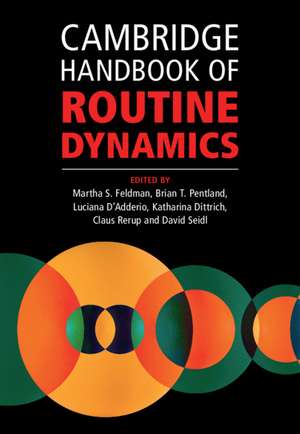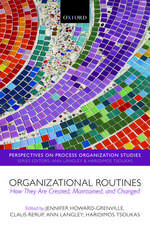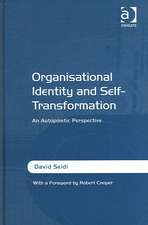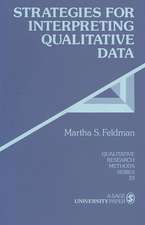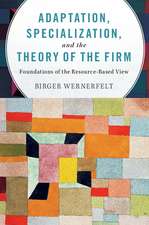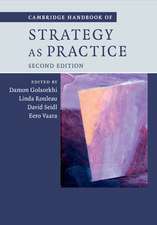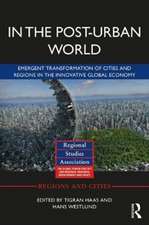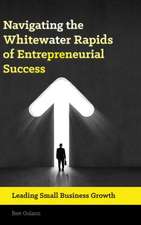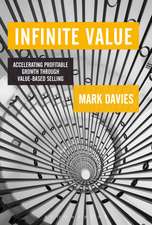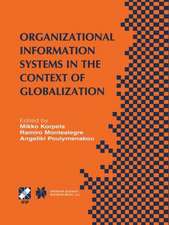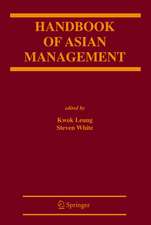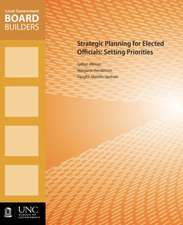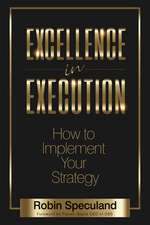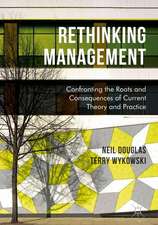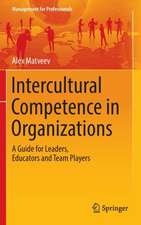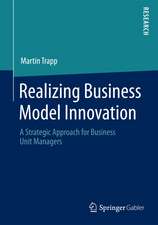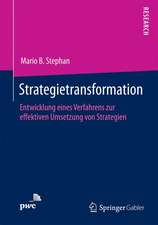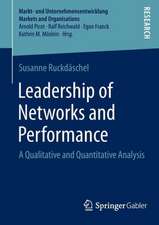Cambridge Handbook of Routine Dynamics
Editat de Martha S. Feldman, Brian T. Pentland, Luciana D'Adderio, Katharina Dittrich, Claus Rerup, David Seidlen Limba Engleză Hardback – 15 dec 2021
Preț: 813.97 lei
Preț vechi: 946.48 lei
-14% Nou
Puncte Express: 1221
Preț estimativ în valută:
155.76€ • 169.87$ • 131.33£
155.76€ • 169.87$ • 131.33£
Carte disponibilă
Livrare economică 03-17 aprilie
Livrare express 19-25 martie pentru 53.36 lei
Preluare comenzi: 021 569.72.76
Specificații
ISBN-13: 9781108834476
ISBN-10: 1108834477
Pagini: 560
Dimensiuni: 175 x 251 x 31 mm
Greutate: 1.18 kg
Ediția:Nouă
Editura: Cambridge University Press
Colecția Cambridge University Press
Locul publicării:Cambridge, United Kingdom
ISBN-10: 1108834477
Pagini: 560
Dimensiuni: 175 x 251 x 31 mm
Greutate: 1.18 kg
Ediția:Nouă
Editura: Cambridge University Press
Colecția Cambridge University Press
Locul publicării:Cambridge, United Kingdom
Cuprins
1. What is routine dynamics Luciana D'Adderio, Katharina Dittrich, Martha S. Feldman, Brian T. Pentland, Claus Rerup and David Seidl; Part I. Theoretical Resources for Research Dynamics Research: 2. Practice theory and routine dynamics Martha S. Feldman; 3. Process theorizing and routine dynamics Haridimos Tsoukas; 4. Ethnomethodology and routine dynamics Juan López-Cotarelo; 5. Pragmatism and routine dynamics Dionysios D. Dionysiou; 6. Actor-network theory and routine dynamics Kathrin Sele; 7. Materiality and routine dynamics Luciana D'Adderio; Part II. Methodological Issues in Research Dynamics Research: 8. Ethnography and routine dynamics Katharina Dittrich; 9. Video methods and routine dynamics Curtis LeBaron and Marlys K. Christianson; 10. Field experiments in routine dynamics Hari Bapuji, Manpreet Hora and Huashan Li; 11. Agent-based modeling in routine dynamics Dehua Gao; 12. Sequence analysis in routine dynamics Christian A. Mahringer and Brian T. Pentland; 13. Narrative networks in routine dynamics Brian T. Pentland and Inkyu Kim; 14. Bakhtin's chronotope and routine dynamics Simon Addyman; Part III. Themes in Routine Dynamics Research: 15. Truces and routine dynamics Luciana D'Adderio and Mehdi Safavi; 16. Context, embeddedness and routine dynamics Jennifer Howard-Grenville and Jan Lodge; 17. Routine interdependence: intersections, clusters, ecologies and bundles Rodrigo A. Rosa, Waldemar Kremser and Sergio Bulgacov; 18. Cognition in routine dynamics Nathalie Lazaric; 19. Time, temporality and history in routine dynamics Scott F. Turner and Violina P. Rindova; 20. Transfer and replication in routine dynamics Charlotte Blanche and Patrick Cohendet; 21. Innovation work and routine dynamics Fleur Deken and Kathrin Sele; 22. Design and routine dynamics Frithjof E. Wegener and Vern L. Glaser; 23. Algorithms and routine dynamics Vern L. Glaser, Rodrigo Valadao and Timothy R. Hannigan; 24. Complexity in routine dynamics Thorvald Hærem, Yooeun Jeong and Mathias Hansson; 25. Bodies and routine dynamics Charlotte Blanche and Martha S. Feldman; 26. Emotion and routine dynamics Giada Baldessarelli; 27. Professional identity and routine dynamics Emre Karali; 28. Occupations, professions and routine dynamics Joanna Kho and Paul Spee; 29. Management practice and routine dynamics Simon Grand; 30. Project-based and temporary organizing and routine dynamics Eugenia Cacciatori and Andrea Prencipe; 31. Self-managed forms of organizing and routine dynamics Waldemar Kremser and Jun Xiao; 32. Unexpected events and routine dynamics Daniel Geiger and Anja Danner-Schröder; Part IV. Related Communities of Thought: 33. Carnegie school experiential learning and routine dynamics Claus Rerup and Bryan Spencer; 34. Dynamic capabilities and routine dynamics Carlo Salvato; 35. Strategy as practice and routine dynamics David Seidl, Benjamin Grossmann-Hensel and Paula Jarzabkowski; 36. Path dependence and routine dynamics Jörg Sydow; 37. Business process management and routine dynamics Bastian Wurm, Thomas Grisold, Jan Mendling and Jan vom Brocke; Index.
Recenzii
'This important handbook lays the ground work for the systematic examination of routines in action across a wide range of organizational conditions, concerns, and consequences. In our unsettled times when so much is on the move, this timely compendium provides an extensive set of conceptual tools and rich array of applications for exploring the workings and entailments of routine dynamics. It will serve as an invaluable resource for scholars interested in practice-based investigations of contemporary organizational routines.' Wanda J. Orlikowski, Alfred P. Sloan Professor of Information Technologies & Organization Studies, MIT Sloan School of Management, Massachusetts Institute of Technology
'The notion of routines as dynamic generative systems developed by the editors and contributors to this volume over the last 20 years has enriched our theorizing of routines as a central feature of organizing, stimulated methodological innovation, and raised novel research questions with important practical implications. This Handbook is a fabulous resource that pulls together these developments and lays out a rich and diverse agenda for future work.' Ann Langley, Honorary Professor of Management, HEC Montreal
'The study of routines has significantly increased in the past two decades, and is now a central perspective within the organization theory community for exploring organizational change and stability. This Handbook provides a super introduction to, and overview of, this growing literature. It connects Routine Dynamics to multiple theoretical perspectives, and in doing so reveals how its language and methodological approaches generate new ways of seeing and digging into important organizational and social issues – such as 'social injustice, fraud and organized crime'. This Handbook should become a 'must read' for organization and management scholars.' Royston Greenwood, Professorial Emeritus, School of Business, University of Alberta and Professorial Fellow, University of Edinburgh Business School
'Routines, and how they change, are central to organizations. The editors have responded by engaging a fabulous array of theoretical perspectives - from agent-modelling to practice theory, from actor-network theory to path dependency. Organization Theorists of all stripes will want to grapple with the fundamental research challenges posed by this inspiring volume.' Richard Whittington, Professor of Strategic Management, Saïd Business School, Oxford University
'The notion of routines as dynamic generative systems developed by the editors and contributors to this volume over the last 20 years has enriched our theorizing of routines as a central feature of organizing, stimulated methodological innovation, and raised novel research questions with important practical implications. This Handbook is a fabulous resource that pulls together these developments and lays out a rich and diverse agenda for future work.' Ann Langley, Honorary Professor of Management, HEC Montreal
'The study of routines has significantly increased in the past two decades, and is now a central perspective within the organization theory community for exploring organizational change and stability. This Handbook provides a super introduction to, and overview of, this growing literature. It connects Routine Dynamics to multiple theoretical perspectives, and in doing so reveals how its language and methodological approaches generate new ways of seeing and digging into important organizational and social issues – such as 'social injustice, fraud and organized crime'. This Handbook should become a 'must read' for organization and management scholars.' Royston Greenwood, Professorial Emeritus, School of Business, University of Alberta and Professorial Fellow, University of Edinburgh Business School
'Routines, and how they change, are central to organizations. The editors have responded by engaging a fabulous array of theoretical perspectives - from agent-modelling to practice theory, from actor-network theory to path dependency. Organization Theorists of all stripes will want to grapple with the fundamental research challenges posed by this inspiring volume.' Richard Whittington, Professor of Strategic Management, Saïd Business School, Oxford University
Descriere
A comprehensive introduction and overview of research in Routine Dynamics written by the central researchers in the field.
